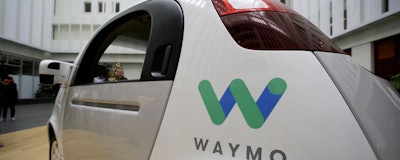
Self-driving cars are closer than they appear. Automated cars have already been tested extensively by companies like Tesla, Google, and Apple. Waymo, one of Google’s self-driving projects, has recorded over 3 million miles self-driven.
“Almost all cars produced will be autonomous in 10 years,” Elon Musk, founder of Tesla and SpaceX, predicted. “In 20 years, it’ll be like having a horse,” he continued, asserting that traditional cars will soon become an “unusual” mode of travel.
As Tesla, Google, and Apple make strides to dominate the field, more automation startups seem to appear. Intel recently announced that the company intended to build a fleet of 100 cars to test their proprietary self-driving technology.
Indeed, the race to build self-driving cars is accelerating rapidly. The industry, despite some hesitation from consumers, is projected to be a booming one as the benefits of self-driving cars are quite substantial.
Possible Solution to Growing Traffic Problems?
“Self-driving cars have remarkable potential to make a significant dent in the $160 billion worth of time and gas that Americans lose stuck in traffic every year,” said Jeff Zients, director of the National Economic Council, “and the hundreds of hours each American spends each year driving."
In its most perfect form, self-driving cars could usher in an age of safe driving. Casualties due to car collisions would likely plummet because of automated self-driving software. Impaired, tired, and irresponsible driving would become a thing of the past. Hundreds of hours would be freed up to pursue more productive activities.
“You know a lot of people die, and there's a lot of wasted labor,” Larry Page, Google CEO, said about our current system of transportation. “The better transportation you have, the more choice in jobs,” he told Fortune, elucidating some positive consequences of hitting the gas on the development of self-driving cars. “And that’s a social good,” he asserted.
Although automated transportation would greatly unburden us from not only the dangers but also the minutia and the mundane concomitant with driving, many are still wary about its use.
Public Sentiment Towards Self-Driving Cars
This isn’t without cause, either, there are a number of roadblocks preventing self-driving cars from being a reality in the short-term. One of the most prevalent of issues precluding self-driving software development being public sentiment.
Interestingly, public sentiment in the US has shifted in a positive direction. In fact, a new study conducted by Autotrader found that 70 percent of shoppers preferred vehicles with autonomous features.
Regardless of this change in sentiment, challenges remain in terms of widespread adoption.
“The largest single answer we got was that people don't want a self-driving vehicle,” Brandon Schoettle, project manager at University of Michigan’s transportation research institute told NPR.
“However, when you combine the responses we got for partially self-driving or completely self-driving, then a majority of people we talked to want some version of a self-driving vehicle.”
Public sentiment aside, practical and ethical issues plague the burgeoning technology. A few questions immediately come to mind.
Where Does the Responsibility Lie?
Who is at fault when accidents occur? Is the owner of the automated car responsible for faulty software? Is the manufacturer? Is no one is at fault when self-driving cars collide for no reason other than chance?
The issue of fault is further complicated when taking into account the possibility for others to hack automated software. However unlikely this scenario may be, it surely poses a threat to the advancement and adoption of self-driving cars.
Beyond practical concerns, there are a few ethical dilemmas. In a recent MIT Technology Review piece, the authors explained by self-driving AI must be programmed to save some lives at the expense of others.
Programming this kind of behavior into software, is unsettling to drivers for obvious reasons. Answering these kinds of questions is deeply uncomfortable and often controversial. But, addressing these tough questions is necessary in order for self-driving cars to move forward in a safe way.
“As we are about to endow millions of vehicles with autonomy,” Jean-Francois Bonnefon, professor at the Toulouse School of Economics in France, told MIT Technology Review, “taking algorithmic morality seriously has never been more urgent.”
---
Joshua Althauser has over 12 years of experience in the tech industry. His interests include data visualization, big data and analysis as well as the intersection of journalism and technology. Some of his works were published on CIO, HBUK, VentureBeat, and Cointelegraph.






















